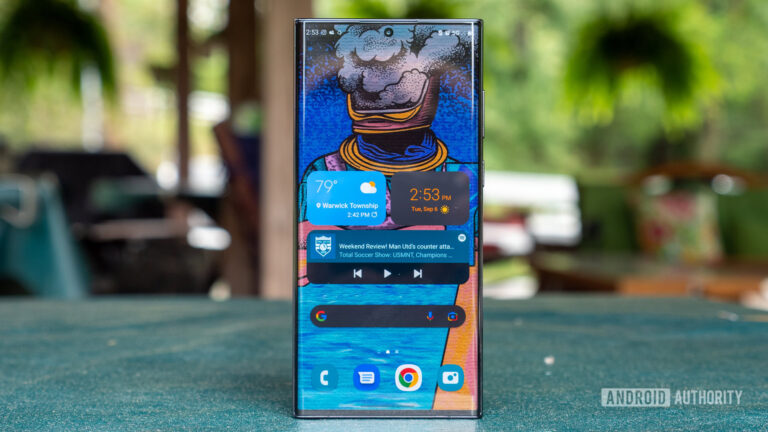Ryan Haines / Android Authority
TL;DR
- A Korean courtroom has dominated that Samsung wasn’t responsible for damages after it throttled Galaxy S22 telephones.
- Nevertheless, the courtroom acknowledged that Samsung engaged in “misleading labeling and promoting that was more likely to mislead customers.”
- Samsung throttled S22 telephones out of the field again in 2022 and didn’t let customers disable this performance at first.
Samsung made headlines for all of the flawed causes in early 2022 when it turned out that the corporate was throttling its Galaxy S22 telephones as a part of its Sport Optimizing Service (GOS) software program. Now, a Korean courtroom has largely dominated in Samsung’s favor in a class-action lawsuit.
A Seoul courtroom discovered (through Yonhap News) that Samsung engaged in “misleading labeling and promoting that was more likely to mislead customers” by throttling the gaming efficiency of Galaxy S22 sequence telephones. Nevertheless, the courtroom additionally dominated that Samsung wasn’t responsible for damages as plaintiffs introduced “inadequate proof” to show damages.
Based on ZDNet Korea, the courtroom additionally stated there have been no restrictions on the S22 line’s normal efficiency, including that the throttling solely utilized to some “high-spec” video games. Subsequently, the courtroom discovered it tough to see this throttling as an element that “considerably” influences the buying selections of normal prospects.
The category-action lawsuit was filed by a bunch of simply over 1,800 smartphone house owners who claimed damages of 300,000 received (~$221) per individual.
Samsung used its GOS software program to throttle Galaxy S22 telephones in a bid to cut back heating when taking part in video games. This throttling additionally utilized to earlier Galaxy telephones, however Samsung made it obligatory on the Galaxy S22 gadgets and didn’t disclose this reality at first. What was additionally significantly controversial was that this throttling utilized to video games however didn’t apply to benchmark apps. The corporate would later launch an replace that allowed customers to cut back this throttling.

